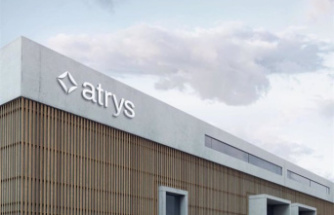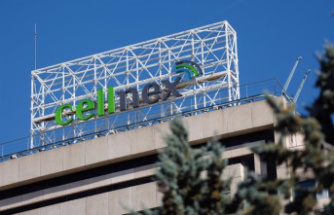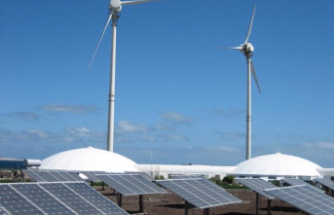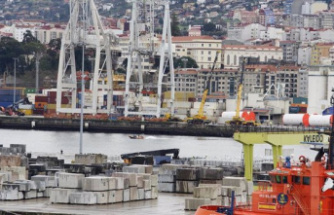LARGO
7 Months Ago
7 Months Ago
3 Months Ago
Pulverized composite, aerohydraulic cylinder, stirred ball mill. These are not terms we think of when we're standing in the candy aisle, staring down a line of heart-shaped boxes full of chocolate.
And yet here is Addam Vessa, 36, standing in the Largo kitchen and retail shop he runs with his brother, Cody, 29. He's walking me through the process of turning cacao beans into chocolate bars.
Addam and Cody, along with their dad John and stepmother Kim, are behind Pinellas Chocolate Company, a small-batch chocolate producer that began in early 2016 amid a boom of local, artisanal food entrepreneurship in Tampa Bay.
Today they're making their 62 percent cacao chocolate bar flavored with dried datil peppers, one of seven dark chocolate varieties they craft from scratch in this facility off Bryan Dairy Road.
The first step: roasting raw cacao beans. We don hair nets, and Addam walks me to a convection oven in the back of the large commercial kitchen that forms the bulk of the shop, where about 30 pounds of brown beans are being twirled around by a mechanical arm. Each part of the process is denoted by a sign hanging over various equipment, with simplistic icons that convey what's happening at each station; these come in handy when Addam and Cody conduct tours of the facility.
"It helps our cause if people can see how we do it, and teach them that chocolate comes from actual beans," he says. "If often surprises people how many steps it takes to make chocolate."
As the beans spin in the oven, a faint heat emitting from the machine, Addam explains that roasting beans is crucial for developing that chocolate flavor. When he discusses the chocolatemaking process, it all sounds very technical: He points out the pulverized remnants left behind, describes the three-stage mill that is used in Step 3, refers to filling chocolate molds as "dosing the cavities."
After the roasting, we follow the beans to the second station, a machine called a winnower that removes an outer husk to free the tiny cacao nib inside. After that, the chocolate is ground into a more fluid form, then refined and tempered to create the shiny, snappy chocolate bars we buy on Valentine's Day.
I ask Addam, who is in charge of the front-of-the-house while Cody heads the work in the kitchen, if he has a background in science or engineering, something that would make him so comfortable with words like "process impact mill" and machines like a winnower.
No, he says. That comes from years of watching his parents run a chocolatemaking equipment business.
"My folks came from the confection industry," he says. "Our father was doing mechanical engineering for candymaking lines, and our stepmom was involved in flavor development and plant management. They have a lot of expertise from their days in the industry that (Cody and I) draw from to this day."
In 2005, John and Kim relocated from Cincinnati to Largo and opened an equipment company specializing in chocolatemaking on a smaller scale. The brothers came down in 2011, Cody getting involved in welding and machine assembly while Addam was on sales and marketing.
Soon, they were making chocolate on a regular basis for equipment demonstrations, showing interested buyers how to make the product in a test kitchen and then giving it away to family and friends. In 2014, the pair decided they wanted to focus on the product itself, "chocolate as the end goal," as Addam says. He and Cody got their test kitchen certified as a commercial kitchen and began to tinker.
"It was through the equipment business that we connected with some artisanal craft producers," Addam says. "We were getting input about how someone from a large chocolate company would make chocolate, and we'd also hear from small-scale companies. We picked up knowledge from both sides of the spectrum."
The craft beer scene in Tampa Bay was picking up, and consumers were becoming more locally minded. It was an ideal time to start a small-batch food company.
In 2016, they officially separated from the equipment business and built awareness through indie markets in St. Petersburg and Tampa, plus popups and collaborations with breweries. They sell some of their nibs for commercial and home brewing, partnering with local brewers who use them in the fermenting or barrel-age process.
"The craft beer audience is a good audience for specialty products," Addam says. "It's easy for them to go, 'I know about local beer, what other category of specialty food is out there?' "
Addam admits that his current job did not evolve from some sort of "calling to produce chocolate." Instead, he and his brother soaked up knowledge from their parents' equipment business and applied it to a business model that has worked for many food producers in Tampa Bay. Currently, they say, they're the only ones in the area applying this local, small-batch method to chocolate.
As a new business, Addam and Cody are constantly exploring different opportunities and recipes that will allow them to grow. Addam says the goal is to be making more chocolate on a regular basis, to have the facility refining up to 125 pounds of chocolate daily.
For Valentine's Day weekend, their chocolates will be paired with brews at Pair O' Dice Brewery and Mastry's Brewing Company. They're also testing a new product, a candy that would combine their own chocolate with caramel from Arkane Aleworks (made by reducing the wort from one of the brewery's sour beers).
It moves them more into the realm of chocolatiers, as opposed to chocolatemakers, which Addam describes as the difference between a coffee roaster who perfects the base product and a barista who crafts the drinks. More artistic, less technical. A new challenge for the brothers who got their start selling machines.
Contact Michelle Stark at mstark@tampabay.com or (727) 893-8829. Follow @mstark17.
Our editors found this article on this site using Google and regenerated it for our readers.













